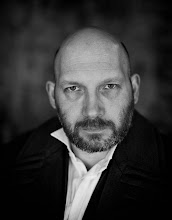
Some things are best achieved with subtlety, others with brute force, yet others are best achieved with some combination of the two. There is a drawing of the meeting between Richard the Lionheart and Saladin which shows Richard breaking an iron bar with his sword – a big European brute of a blade, best suited to smashing and bashing – while Saladin demonstrates the edge of his blade by cutting a piece of silk with it. That particular drawing sums up how I have managed to overcome – more or less – my recent bout with the blank page.
Sometimes the only way to write is to just do it – to be like Richard smashing your way through a problem and not allowing the niceties in life to get in the way – then to come back and do a Saladin – use the edge of your writing ability to shape the prose into a smoother form.
Of course, all writers have different ways of dealing with the problem of ‘lack of imaginative flow’ – this one just happened to work for me. And right pleased about it I am, too.
Now this doesn’t mean that the recently completed story is of any worth (although I rather like it) but more that I’ve conquered a personal demon.
The spectre of the white page can be one of the most daunting things for any writer to face, particularly on those days when you really don’t feel like writing, when the clichés pour from your mind and hands in an unstoppable torrent. But, and here’s the strange thing, once you manage to get those clichés out of the way, it very often frees the mind to move on to more original thoughts (original in this case being a very, very subjective thing).
I think that sometimes you have to have the courage to write badly and realise that not every word that you put on paper will be the ideal one, that not every sentence will be beautifully constructed or indeed that every plot will be a logical and gripping one.
No one sets out to write badly, but sometimes it helps to do just that.
Sometimes the only way to write is to just do it – to be like Richard smashing your way through a problem and not allowing the niceties in life to get in the way – then to come back and do a Saladin – use the edge of your writing ability to shape the prose into a smoother form.
Of course, all writers have different ways of dealing with the problem of ‘lack of imaginative flow’ – this one just happened to work for me. And right pleased about it I am, too.
Now this doesn’t mean that the recently completed story is of any worth (although I rather like it) but more that I’ve conquered a personal demon.
The spectre of the white page can be one of the most daunting things for any writer to face, particularly on those days when you really don’t feel like writing, when the clichés pour from your mind and hands in an unstoppable torrent. But, and here’s the strange thing, once you manage to get those clichés out of the way, it very often frees the mind to move on to more original thoughts (original in this case being a very, very subjective thing).
I think that sometimes you have to have the courage to write badly and realise that not every word that you put on paper will be the ideal one, that not every sentence will be beautifully constructed or indeed that every plot will be a logical and gripping one.
No one sets out to write badly, but sometimes it helps to do just that.


